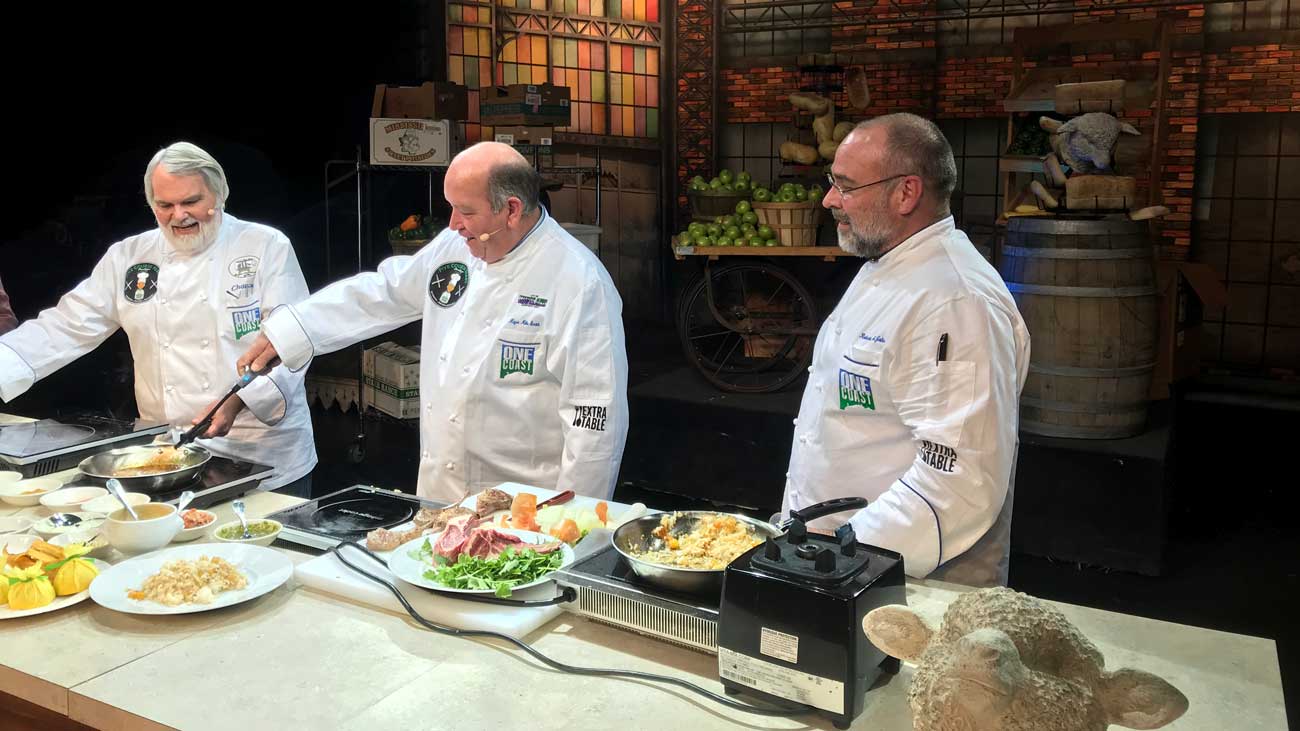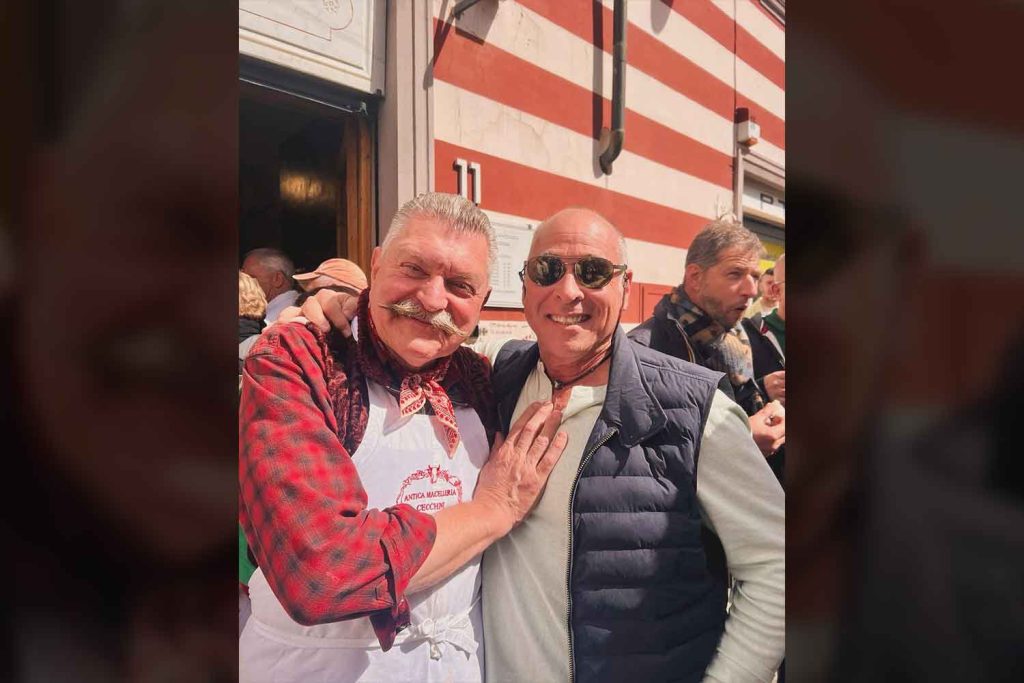Last week Austin Leslie, the creator of Creole-Soul food and a true New Orleans culinary journeyman, died in Atlanta. He was 71.
Leslie, who most recently manned the stoves at Pampy’s Creole Kitchen, was best known for his groundbreaking Creole Soul-food restaurant Chez Helene and his world-class fried chicken.
I met Leslie while he was working the deep fryer at Jacques-Imo’s on Oak Street in the Carrolton district of New Orleans. At that point in his life he had seen all of the highs and lows of the restaurant business over the course of a 50-year career in which he began as a fried-chicken delivery boy, rising to the pinnacle of multi-restaurant proprietor— including one property that inspired a CBS television series.
While in high school, Leslie delivered chicken via bicycle from the kitchens of Portia’s restaurant on Rampart Street. Years later, Leslie would credit Portia owner Bill Turner as the man who taught him how to fry chicken After a brief military stint, he began his lifelong culinary tour of duty with a job as an assistant chef in the kitchen of the D. H. Holmes department store on Canal Street.
In 1964 he joined his aunt Helen at her restaurant Chez Helene in the Seventh Ward. It was there that he perfected his version of the Portia’s fried chicken recipe.
After purchasing the restaurant from his aunt in the mid 1970s Leslie’s fame and popularity grew. In short order, a string of fried chicken franchises opened and satellite Chez Helene restaurants opened in Chicago and the French Quarter. He was on top of the world and being touted as the next Prudhomme— the African-American Prudhomme. His Creole Soul food was the hit of one of the nation’s most prominent food cities and was on track to becoming a nationwide phenomenon.
In the mid 1980s CBS aired the television show Frank’s Place inspired by— and based loosely on— Leslie and his restaurant. The show tackled dramatic inner-city social issues in a sitcom format, and though critically acclaimed, failed to reach an audience, and was cancelled after one season.
By the early 1990s urban decay, lack of management, and poor business decisions led to the closing of Leslie’s restaurants including the flagship on North Robertson Street. He spent the next few years picking up odd kitchen jobs in locales as far away as Copenhagen, Denmark.
In 1996 Leslie wound up back in New Orleans manning the fry station at Jacques-Imo’s. It was there, one evening before a concert, that I met the man who first fused Creole and soul into what would become a much copied culinary style in a city known for its culinary style. He was humble and gracious and jovial. The restaurant business had beaten him down but the scars weren’t visible.
The Leslie signature on a perfectly cooked chicken thigh was a sprinkling of chopped parsley and garlic. Those simple ingredients, along with an evaporated milk marinade, are what took the man from neighborhood delivery boy, to the heights of Hollywood, to the fry station at a neighborhood joint.
Recently, Leslie was hired on as the new executive chef at Pampy’s Creole Kitchen in the Seventh Ward. It would be his last stop.
Austin Leslie spent two days in the attic of his home after Hurricane Katrina. The septuagenarian was finally rescued from the sweltering 98-degree heat and stifling humidity and relocated to the chaos and horror of the New Orleans Convention Center. He remained there, lost in a sea of distress, until he was relocated to Atlanta. On September 28 th he was admitted into an Atlanta hospital with a high fever. He died the next day.
New Orleans was Leslie’s lifeline. Over a fifty year period he had survived all of the blows that the brutal restaurant business could deliver and was still enduring. The man who helped put New Orleans cuisine on the map died homeless, in a city that had no clue of his culinary pedigree. In the end, the storm that continues to take lives even a month after its landfall, struck one of its most monumental blows in a city far removed from the one that care forgot.
There will be no shrines erected for Austin Leslie. No publisher will ever issue a tribute to his legacy. Two hard-to-find and out-of-print cookbooks are all that remain as a testament to his career— that and the memories of the hundreds of thousands who enjoyed his fried chicken, Creole-stuffed peppers, and etouffee.
Austin Leslie’s Fried Chicken Recipe
1 Chicken fryer cut into 8 pieces
1 /2 cup Peanut oil
Salt and black pepper to taste
1 Egg
1 cup Evaporated milk
1 cup Water
½ cup Flour
4 Tbl Fresh minced garlic
4 Tbl Fresh minced parsley
Heat oil in a cast iron skillet to 350°F. NOTE: Oil should come about halfway up sides of skillet. Adjust amount in accordance with skillet size. Combine garlic and parsley in small mixing bowl and set aside.
Wash chicken pieces in cool water, pat dry with paper towels and sprinkle with salt and pepper. Set aside.
In a medium mixing bowl, whisk egg, evaporated milk and water. Season with salt and pepper. Place flour in a separate bowl. One piece at a time, starting with heaviest pieces, dip chicken into egg wash, squeeze, dip into flour and place gently in skillet. Do not overcrowd skillet. Maintain temperature of 350°F. Use tongs and long fork to turn chicken often for 7–8 minutes. Remove chicken from oil with tongs, pierce with fork and squeeze. Place chicken back in oil approximately 7–8 minutes. Chicken is done when no longer hissing and juices run clear. Remove from oil and place on paper towels to drain. Immediately top with a sprinkle of garlic and parsley mixture. Continue until all the chicken is cooked.



